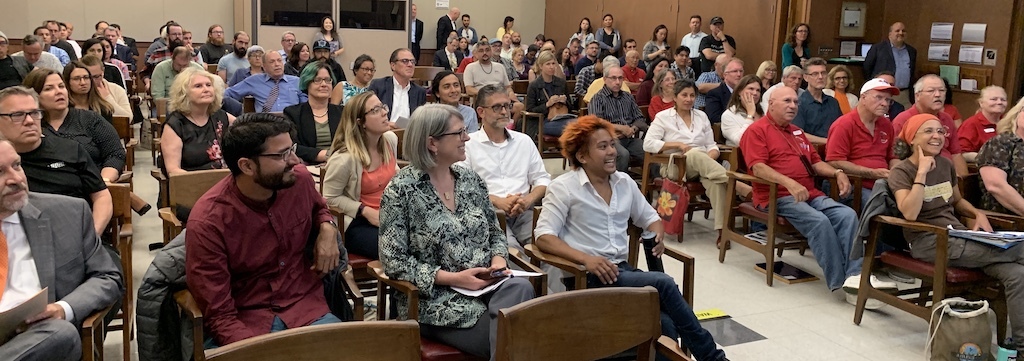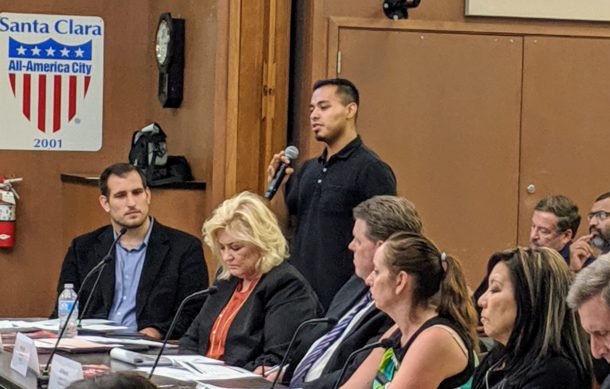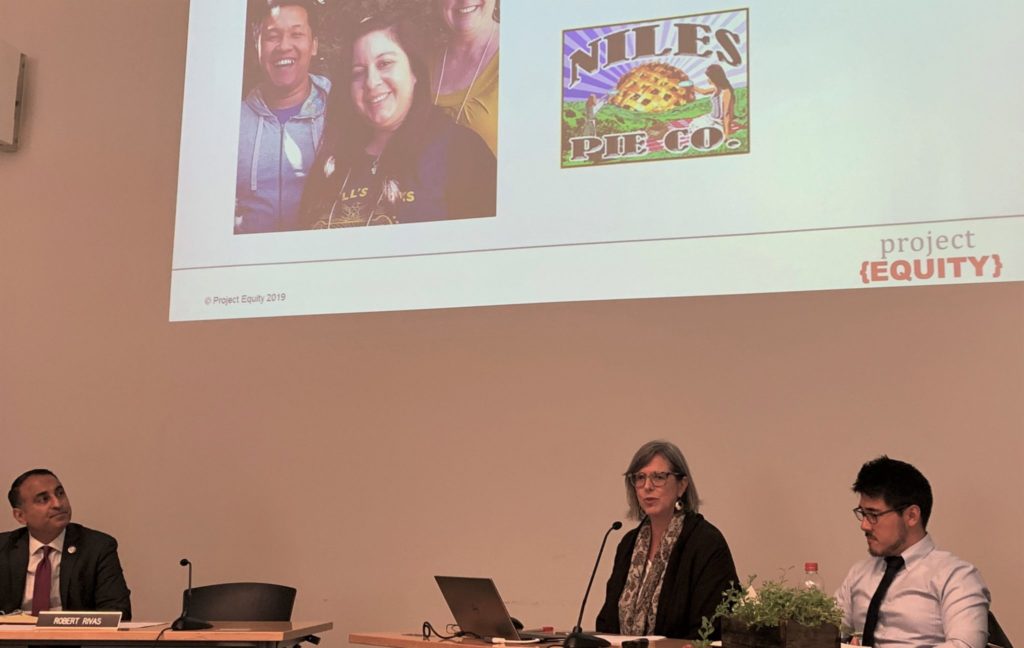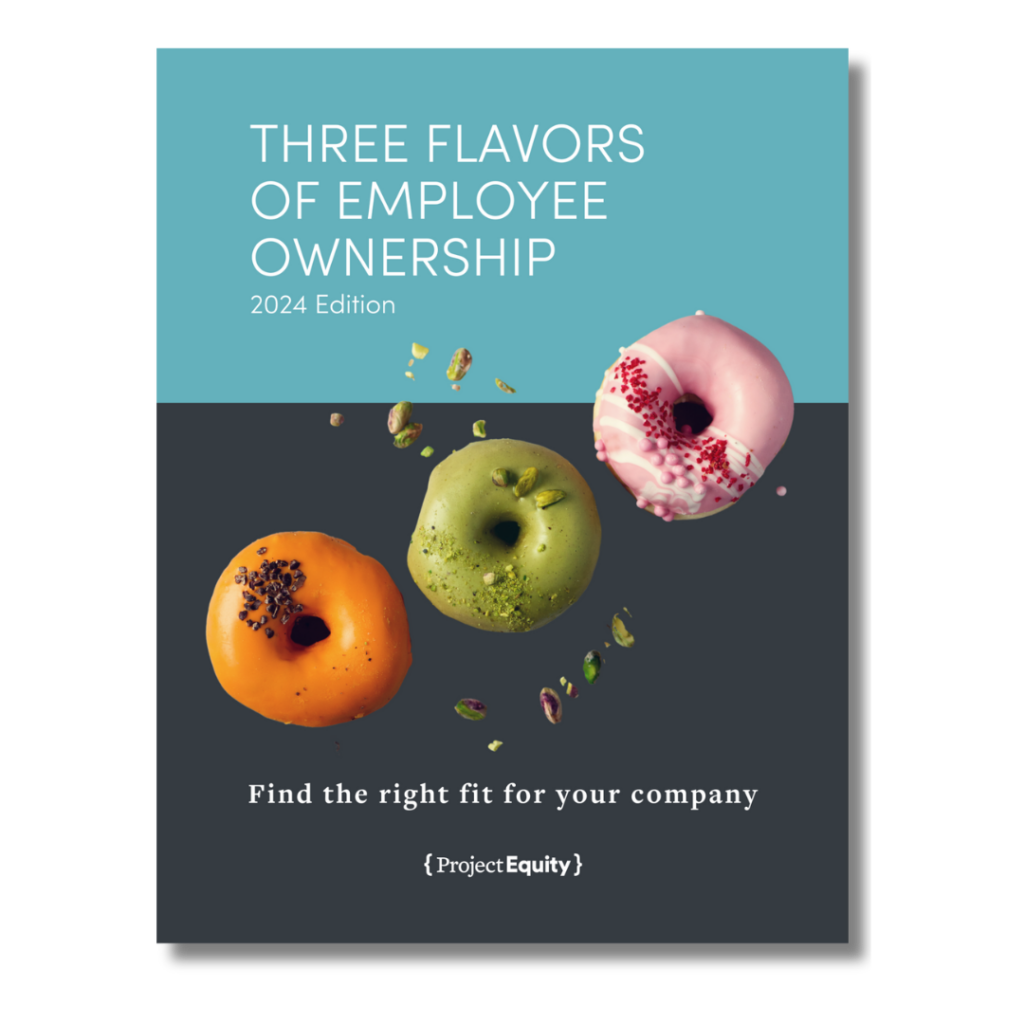The Future of Work: Project Equity joins allies in educating state and local government in the South Bay
- Genevieve Adams

State and local government engagement has increased recently, with high-energy events in the South Bay of the San Francisco Bay Area, alongside a California statewide conversation about the Future of Work.
On Tuesday, July 9, 2019, Santa Clara City Council and City Staff held a one-hour workshop titled: the Worker Cooperative Business Model. Kirk Vartan from A Slice of New York led the collaborative presentation with Hilary Abell from Project Equity, sharing an overview of worker cooperatives, how the structure might help address some of the current challenges facing the City and region, examples of what other cities are doing locally and nationally, and some suggested next steps.
The Sustainable Economies Law Center (SELC), Arizmendi Association of Cooperatives, and Niles Pie Company also presented, and the US Federation of Worker Cooperatives (USFWC), Democracy At Work Institute (DAWI), and Network of Bay Area Worker Cooperatives (NoBAWC) provided additional materials and support.
You can view all the presentations and the City Council members’ discussion in this recording of the study session.
At the end of the session, the City Council expressed great appreciation for the information provided and unanimously approved a motion to refer the question of how (not whether) the City should support worker cooperatives to the Economic Development, Marketing, and Communications Committee.


The Committee met on September 18th and recommended a budget allocation of $100,000 to kick off the work with a two-part focus: drafting a resolution in support of worker cooperatives and potentially implementing an outreach program modeled on the work Berkeley has done with Project Equity. Project Equity’s Eric Medrano was present to answer questions about how we partner with cities and the importance of strategic outreach efforts.
Meanwhile, the California State Assembly Committee on Labor and Employment held a hearing about worker cooperatives on August 16, 2019, in San Jose. Representatives of Project Equity and several partner organizations and cooperatives spoke at the session, which was the first in a three-part series on the Future of Work organized by Assemblymember Ash Kalra (D-San Jose).


To open the session, Assemblymember Kalra made this statement about his first session on the Future of Work:
“I thought it would be a great way to start by talking about worker cooperatives. I do think that worker cooperatives play a critical role in our ability to ensure that we have a sustainable workforce going into the future.”
The full session on the topic of worker cooperatives can be viewed in this video recording on the State Assembly’s website.
This comes after the May 1st announcement by Governor Newsom, who signed an executive order establishing the Future of Work Commission.
Many of the Commission’s goals coincide with Project Equity’s mission, which includes promoting jobs that are higher quality, and provide better pay and working conditions, and determining how to preserve good jobs that promote economic equality.
The commission comprises 22 government, business, union and nonprofit leaders from throughout the state, including Assemblymember Kalra, who heads the Assembly Committee on Labor and Employment.
At the end of the hearing on worker cooperatives, Assemblymember Kalra talked about his experience riding the 24-hour bus in San Jose to get a sense of the homeless individuals on the bus. He found that many riders were working late shifts in restaurants downtown and taking the 2 AM bus home to East San Jose.
“When I think about empowering workers, I think about those workers, and what an opportunity if they were able to be more empowered in their work. I think we can repeat that in all the different industries that cooperatives are active in now. ”
